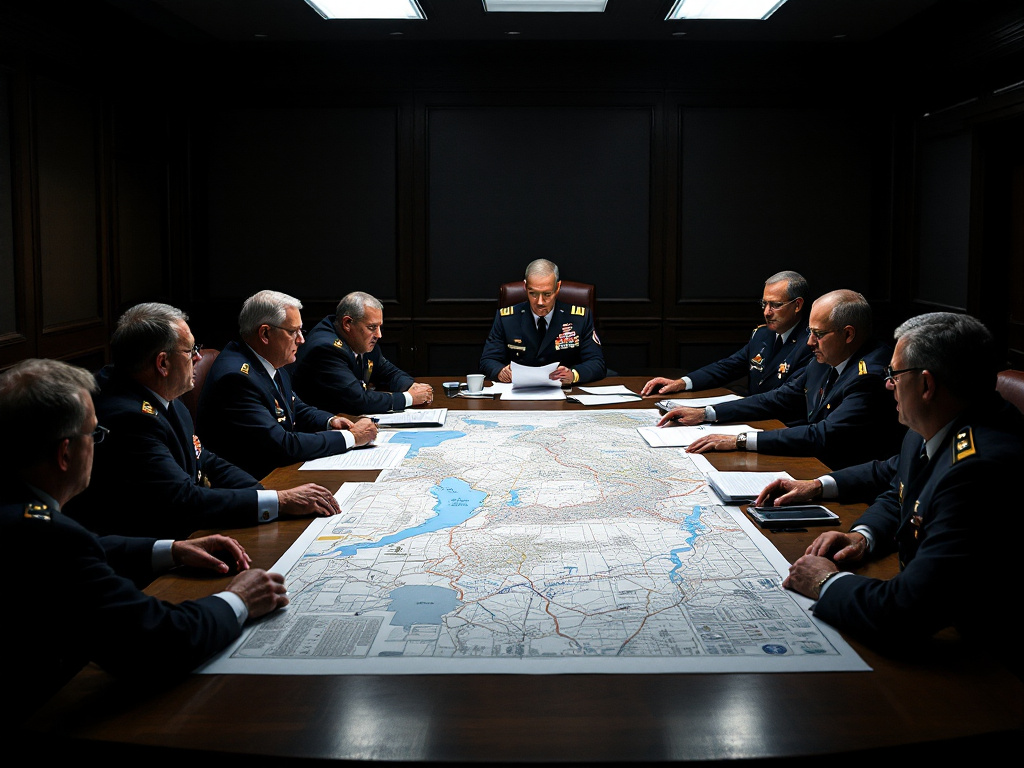Republican Leaders Raise Concerns
A significant number of Republican lawmakers have expressed strong opposition to the Trump administration’s rumored plan to overhaul key military commands, highlighting a rare internal conflict within the party. Leading this charge are Senator Roger Wicker and Representative Mike Rogers, who head the Senate and House Armed Services Committees, respectively. On Wednesday, they issued a joint statement expressing their alarm at reports suggesting that the administration might give up the United States’ long-held position as NATO’s Supreme Allied Commander Europe. This role, which has traditionally been filled by a U.S. four-star general, oversees all NATO operations in Europe and has been a cornerstone of U.S. military leadership since its creation in 1950.
The lawmakers’ statement stressed that any significant changes to military structures should not be made unilaterally, without the necessary coordination within Congress and relevant agencies. They warned that such moves might undermine U.S. deterrence capabilities and weaken negotiation positions with global adversaries. “Changes of this magnitude require rigorous interagency processes and collaboration,” their statement emphasized.
The GOP leaders see this as a part of a broader Defense Department strategy aimed at cutting costs—a directive initially issued by Secretary of Defense Pete Hegseth earlier in February.
However, the proposal has sparked fears that the U.S.’s departure from this critical NATO role could diminish its influence and commitment to European security, especially amid rising tensions with NATO allies and Russia.
Potential Implications for U.S. Military Presence
The potential shake-up also includes scaling back U.S. forces planned for Japan, consolidating several military commands to reduce bureaucratic overhead, and possibly relinquishing the prestigious NATO command. This strategy is seen as part of a larger Pentagon initiative intended to implement an 8% budget reduction. Such dramatic restructuring has alarmed key members of Congress who believe it could lead to broader military disengagements.
Wicker and Rogers have already signaled that they might use the legislative branch’s power of the purse and other congressional tools to counter the administration’s proposals. They emphasized that maintaining strong U.S. military presence and leadership is crucial, highlighting past bipartisan commitments to enhance allied contributions and ensure robust deterrence globally.
Despite the circulating rumors, discussions about these changes are reportedly still in their initial stages. As of now, no formal announcements have been made, and the feasibility of such actions remains uncertain. Nevertheless, the mere consideration of these changes has stoked significant opposition within the legislative corridors.
It remains unclear how the proposed cuts align with broader national security and strategic objectives, given the current fragile geopolitical landscape.
Internal Party Divergence
The dissent among Republican ranks marks a notable departure from the usual party alignment with President Trump’s military policies. This situation underscores growing apprehension among GOP lawmakers about the potential erosion of U.S. commitments, particularly at a time when NATO’s cohesion is deemed vital for regional and global stability.
The contingency plans under discussion point to a deeper strategic pivot in U.S. defense postures, which some analysts say reflects Trump’s broader approach to international alliances and military spending. By pushing for allied nations to bear more defense burdens, the administration says it aims to focus resources more domestically. However, critics argue that such moves could isolate the U.S. from its key strategic partners.
The unexpected internal challenge to Trump’s military strategy, especially from such influential Republican figures, also indicates a deeper consensus within Congress on the importance of maintaining strategic alliances. “We must ensure that America remains a global leader,” Wicker remarked during a recent defense committee meeting.
While top Pentagon officials have declined to comment on the ongoing speculations, insiders suggest that intense discussions are underway to evaluate the potential impacts and feasibility of these plans. Whether these proposals will materialize remains to be seen, but the dialogue highlights the fragility and complexity of U.S. military policy in a rapidly changing world.


